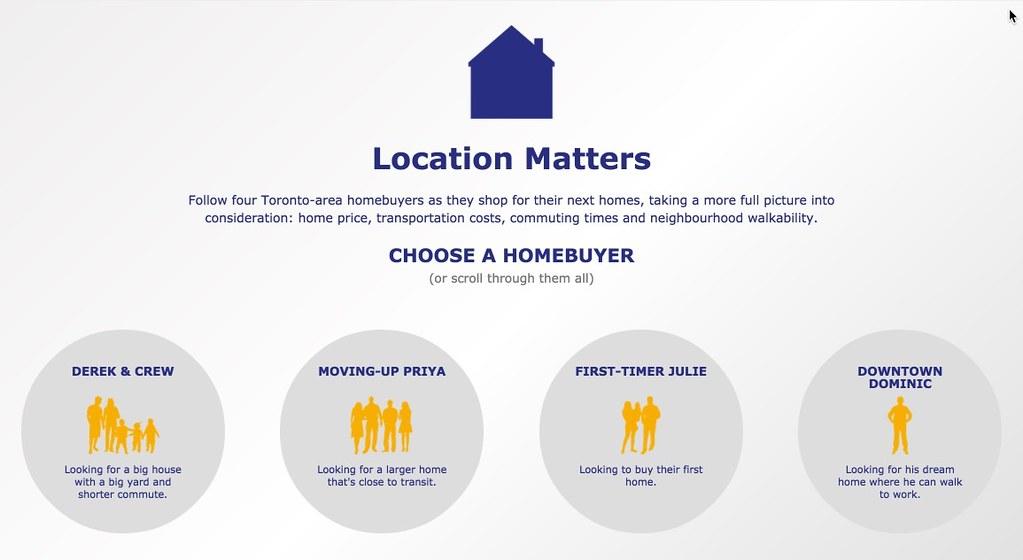Navigating the path to homeownership can often feel like venturing through a labyrinth, where every turn presents a new challenge or a puzzle to solve. At the heart of many potential homebuyers’ anxieties lies the daunting hurdle of securing loan approval—a process that can evoke more butterflies in the stomach than a first date. For many, this process is shrouded in mystery, filled with complicated jargon and stringent requirements that seem as decipherable as ancient runes. Yet, understanding this crucial step can transform it from a nerve-wracking ordeal into a celebratory milestone on the journey toward acquiring a dream home. This article aims to demystify the home loan approval process, offering insight and advice to smooth the road to obtaining the keys to your new kingdom. Whether you are a first-time buyer or looking to move up the property ladder, here’s how to approach the financial maze with confidence, ensuring that the dream of homeownership becomes a reality with less worry and more assurance.
Table of Contents
- Understanding the Basics of Mortgage Pre-Approval
- Exploring Common Concerns Among First-Time Homebuyers
- Strategies to Enhance Your Loan Approval Chances
- Essential Documents You Need for Smoother Loan Approval
- Wrapping Up

Understanding the Basics of Mortgage Pre-Approval
Stepping into the realm of home buying can stir up a mix of excitement and anxiety, particularly when it comes to securing a mortgage. A pivotal step in alleviating these concerns is obtaining a mortgage pre-approval. This process provides prospective homebuyers with a clear idea of their borrowing capacity, significantly smoothing the pathway to securing their dream home.
Mortgage pre-approval is essentially a lender’s offer to loan you a certain amount under specific terms, before you have even found a home. It is based on a preliminary review of your financial status – a snapshot that includes your income, debt, credit history, and savings. By understanding this process, you can position yourself as a serious buyer in the eyes of sellers and real estate agents.
- Financial Assessment: Lenders will evaluate your financial history and health, ensuring you have the capacity to repay the loan.
- Credit Score Check: Your credit score plays a crucial role in determining the terms of your loan, and a pre-approval includes a thorough check.
- Debt-to-Income Ratio: This ratio measures your total income against your existing debts, crucial for determining your loan amount.
It’s important to note that the pre-approval process may impact your credit score slightly, as lenders perform what’s known as a “hard inquiry” to check your creditworthiness. However, this small dip should not dissuade you, as the benefits of being pre-approved can vastly outweigh this temporary impact.
To simplify your application for a pre-approval, several documents are usually required. Typically, these will include several months of salary statements, tax returns for the past two years, recent bank statements, and documents relating to long-term debts such as student loans or car loans.
The knowledge of how much you can spend simplifies your search for the perfect home, filtering out options that are either under or above your budget. This focus not only saves time but also enables more concise negotiations with sellers, positioning you as a credible buyer.
| Document | Reason |
|---|---|
| Salary statements | Proof of income |
| Tax returns | Verification of annual earnings and tax obligations |
| Bank statements | Assessment of financial health and savings |
| Debt records | Understanding of financial commitments |
Although a mortgage pre-approval is a vital step, it’s crucial to remember that it does not last indefinitely. Typically, pre-approvals are valid for 60 to 90 days, as lenders recognize that financial situations can change. During this period, it’s advisable to avoid making large purchases or taking on additional significant debts, as these can affect your approved status.
To wrap up, securing a mortgage pre-approval is a significant tool that leverages your position as a homebuyer, hints at your seriousness to sellers, and sets a realistic expectation of your budget. With this certificate in hand, your journey to purchasing your new home becomes clearer and a step closer to fruition.

Exploring Common Concerns Among First-Time Homebuyers
Stepping into the realm of homeownership can evoke a mix of excitement and anxiety, particularly when it comes to the daunting process of loan approval. Understanding the concerns that often burden first-time homebuyers can significantly ease the journey. Let’s demystify some of the most common worries with practical advice and insights.
Am I Eligible for a Mortgage?
Many first-time buyers fear that their financial background may not qualify them for a loan. The criteria for eligibility can vary, but generally, lenders will look at your credit score, income stability, debt-to-income ratio, and your employment history. Preparing these aspects beforehand can boost your confidence and your chances of approval. Additionally, exploring different types of loans, such as FHA loans, which have more lenient qualifications, can also open doors to possibilities.
How Much Down Payment Do I Need?
This question often lingers in the minds of potential buyers. Traditionally, a 20% down payment is cited as the standard, but there are options available that require less. Depending on the loan type, down payments can be as low as 3.5% for FHA loans or even 0% for VA and USDA loans — ideal for those who qualify.
Understanding Credit Score Impact
Your credit score is a critical determinant in the loan process, influencing not just the approval but also the interest rate offered. A higher score generally fetches lower rates. First-time buyers should review their credit scores early to rectify any inaccuracies and possibly improve their score. Simple actions like paying bills on time and reducing debt can make a significant difference.
The Fear of Hidden Costs
Unanticipated expenses can be a major worry. It’s important to ask lenders about all possible costs upfront. Typical expenses include closing costs, home inspections, appraisals, and possible homeowner association fees. An itemized list from your lender can help you plan your budget more effectively:
| Expense | Typical Cost |
|---|---|
| Closing Costs | 2-5% of loan amount |
| Home Inspection | $300-$500 |
| Appraisal | $250-$400 |
| HOA Fees | $200-$400 (Monthly) |
What If My Loan is Not Approved?
It can be disheartening to face rejection, but it’s not the end of the road. Understanding why you were denied can help you make targeted improvements. Lenders must provide explanations for loan denials, so use this feedback constructively. Sometimes waiting a few months to better your financial health, or considering another lender or loan product, could be beneficial.
Variable vs. Fixed Interest Rates
Choosing between a variable or fixed interest rate can significantly affect future financial planning. Fixed rates remain the same throughout the term, offering predictability in budgeting; variable rates can fluctuate with market conditions, sometimes resulting in lower rates but adding uncertainty. Assessing your long-term financial stability can help determine the best choice for you.
Long-Term Financial Commitment
Committing to a mortgage feels monumental, but understanding that owning a home is typically an appreciating investment helps. Real estate generally increases in value over time and can provide not just a home but a valuable asset. Planning your budget for the upcoming years and forecasting future income stability can alleviate this concern.
By addressing each of these areas, first-time homebuyers can approach the home purchasing process with a clearer, more confident mindset. Preparation and knowledge are key in transforming the overwhelming into the manageable.

Strategies to Enhance Your Loan Approval Chances
Securing a home loan can often seem like navigating a labyrinth, with each turn presenting new challenges. However, understanding key strategies can significantly boost your chances of approval. Here are practical tips to ensure you present the best possible case to lenders.
Check Your Credit Score Regularly
Your credit score is a critical factor in loan approval. Higher scores not only enhance approval likelihood but also attract better interest rates. Obtain a copy of your credit report from major credit bureaus annually, and scrutinize it for any errors or opportunities for improvement.
Strengthen Your Financial Health
Lenders assess your financial stability through your income, debts, and assets. Prior to applying, focus on lowering existing debts, avoiding new debts, and accumulating savings. This not only improves your debt-to-income ratio but also bolsters your down payment, making you a more appealing candidate.
Avoid Job Hopping
Employment consistency is key. Lenders favor applicants with steady employment histories as it suggests financial stability and reliability. If possible, avoid changing jobs in the months leading up to your loan application, especially to a lower-paying role or a completely different industry.
Choose Your Loan Type Wisely
There are various loan options available, each with its pros and cons. Research thoroughly or consult with a financial advisor to choose the loan type that best suits your financial scenario and investment goals.
Prepare and Organize Documentation
Lenders will request a plethora of documents, including tax returns, bank statements, and proof of assets. Being prepared with organized, up-to-date documentation can fast-track the application process and create a positive impression on the lender.
Consider a Co-signer
If your financial background is less than stellar, having a co-signer with a strong credit profile can enhance your application. A co-signer provides a safety net for lenders, thereby potentially increasing loan approval chances.
Make a Significant Down Payment
The bigger your down payment, the smaller your loan, and the less risk for the lender. Saving for a significant down payment not only demonstrates financial discipline but can also lead to more favorable loan terms, including lower interest rates.
To put these tips into perspective, consider how each factor impacts your loan approval odds:
| Strategy | Impact on Loan Approval |
|---|---|
| Credit Score Improvement | Increases approval chances & might lower interest rates |
| Debt Reduction | Enhances debt-to-income ratio |
| Stable Employment | Demonstrates financial reliability |
| Right Loan Type | Matches your financial situation, reducing risk of default |
| Organized Documents | Speeds up the approval process |
| Co-signer Inclusion | Provides lender security, improving approval likelihood |
| Large Down Payment | Lowers loan amount and risk to lender |
Each of these strategies not only improves your chances of getting a home loan approved but also potentially secures more favorable loan terms. Implementing these steps can make a significant difference in your home buying journey.

Essential Documents You Need for Smoother Loan Approval
Securing a home loan can often seem like a daunting task, but being prepared with the right documents can significantly smooth the process. Here’s a guide to the essential paperwork you should have at your fingertips when applying for a mortgage.
Identification Proof
- Government-issued ID card (e.g., passport, driver’s license)
- Social Security card
- Proof of legal residence if you are not a U.S. citizen
Income Verification
- Recent pay stubs (last two months)
- W-2 forms and tax returns from the past two years
- Additional income documentation (e.g., alimony, bonuses)
Asset Information
- Bank statements from the last three months
- Investment account statements
- Real estate or property deeds
Credit Information
- Recent credit report
- Details of current debts, including credit cards and other loans
Employment Verification
- Employer’s contact information
- Recent job offer letters or employment agreements, if applicable
Current Residential Status
- Recent mortgage statements or rent receipts
- Utility bills in your name
Below is a simplified checklist presented in a table to ensure you have all you need for a smoother loan approval process:
| Document Type | Details | Notes |
|---|---|---|
| Proof of Identity | Passport, Driver’s License | Ensure these are valid and up-to-date |
| Proof of Income | Pay stubs, W-2s, Tax Returns | Cover the last two years |
| Proof of Assets | Bank statements, Property deeds | Reflects financial stability |
| Credit Details | Credit reports, Debt summaries | Check for accuracy beforehand |
| Proof of Residence | Mortgage statements, Rent receipts | Current and previous addresses |
Gathering these documents might take some time, but having them organized beforehand can immensely accelerate your loan approval process. Make sure to keep both physical and electronic copies, as lenders may request multiple instances of the same document. Good luck with your home buying journey!
Wrapping Up
As we tie the bow on our exploration of homebuyer anxieties surrounding loan approval, take heart in knowing that apprehension is simply a stepping stone on the path to homeownership. Equipped with the right information, a savvy approach, and a touch of patience, you can transform concern into confidence. Remember, it’s not just a loan you’re seeking—it’s a gateway to a new chapter of life, a secure haven that could be all yours. Let the insights shared be your guide and your assurance. Follow these strategies, reach out for the right support, and step boldly towards turning that key in your future front door. After all, it isn’t just a house you’re buying—it’s a home.
